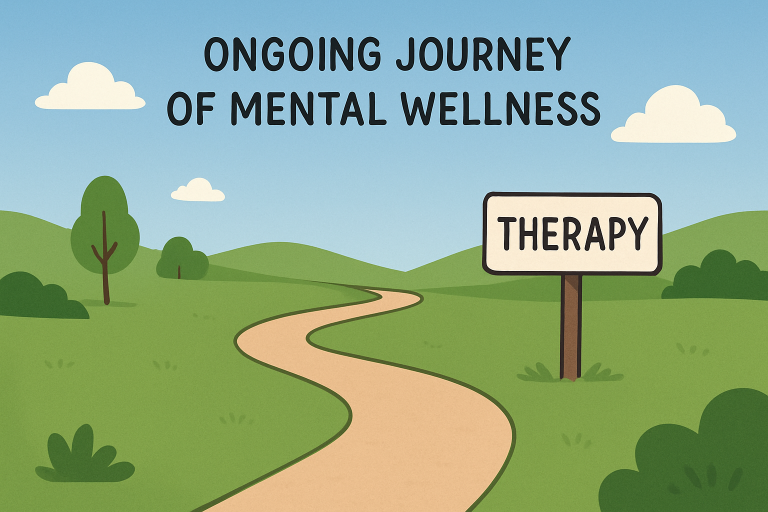Health and Wellness
How Therapy Supports Lifelong Mental Wellness: Fresh Perspectives and Real-World Benefits
Key Takeaways
- Mental wellness is an ongoing journey that benefits from a variety of therapeutic approaches.
- Therapy can play a crucial role in reducing stress, fostering self-discovery, and building resilience.
- Scientific studies support therapy’s effectiveness for people of all ages and backgrounds.
- Integrating therapy with lifestyle choices contributes to holistic well-being.
- Accessibility and attitudes toward therapy are evolving, making support more accessible.
Mental Wellness in the Modern World
In an age where daily responsibilities seem ever-expanding, cultivating mental wellness has never been more important. The fast pace of modern life—with its blend of digital distractions, professional demands, and personal goals—can easily overshadow the critical need for emotional and psychological resilience. Over the last decade, society has begun to recognize that mental health is foundational to every aspect of well-being. Increasingly, individuals are turning to options like a therapist Royal Oak for guidance and support, seeking out new ways to manage stress, enhance relationships, and navigate life’s inevitable transitions.
The importance of accessible, compassionate mental health care has become apparent not just for those in crisis but for anyone wanting to foster lifelong wellness. Therapy’s value extends beyond symptom management; it empowers individuals to gain a deeper understanding of themselves, develop healthy coping strategies, and connect with the world in meaningful ways. By beginning with a local therapist in Royal Oak, many are discovering that nurturing mental health can be a proactive, rewarding endeavor, not merely a reactive one.
Widespread Benefits of Therapy
Therapy delivers tools and insights for individuals at all stages of life, regardless of background. Research consistently demonstrates that working with a skilled mental health professional leads to measurable improvements in emotional intelligence, communication, and self-awareness. Far from being limited to those with diagnosed mental health disorders, therapy benefits students facing academic pressure, working professionals battling burnout, parents managing family dynamics, and older adults transitioning into new life phases. For example, cognitive behavioral therapy (CBT) has been shown to reduce anxiety and depression, while also offering valuable skills for day-to-day living.
Beyond clinical outcomes, therapy fosters a sense of empowerment. Individuals report that counseling helps them process difficult emotions, strengthen interpersonal bonds, and develop lifelong habits for stress management. With growing recognition that preventative mental health care is as essential as routine physical check-ups, therapy continues to position itself as a cornerstone of lifelong wellness.
What Makes Therapy Work?
The effectiveness of therapy lies in its adaptability and foundation in evidence-based approaches. There is no universal solution in mental health care; instead, treatment is highly personalized. Some may benefit from cognitive behavioral interventions, which focus on reshaping thought patterns, while others might thrive with mindfulness-based therapy, emphasizing awareness and emotional regulation. Family and couples therapy, meanwhile, can dramatically improve communication dynamics within relationships. Comprehensive resources—such as those provided by the Mayo Clinic—offer valuable guides for individuals considering the benefits of each approach.
Building Resilience and Managing Stress
Resilience is not an innate trait but a set of skills developed over time—and therapy is one of the best avenues for cultivating it. Through therapeutic guidance, people learn to recognize strengths, reframe negative experiences, and cope with uncertainty. Practical techniques, such as goal setting, guided relaxation, and cognitive restructuring, equip individuals to respond to setbacks with flexibility and optimism. The ripple effects extend to all corners of life, enhancing both personal and professional spheres, and providing strategies to mitigate the impact of chronic stress.
Therapy and Lifestyle: A Winning Combination
Long-lasting mental wellness often stems from the synergy between therapy and healthy lifestyle choices. Incorporating regular exercise, proper nutrition, and creative outlets—such as music or journaling—alongside therapy sessions has been shown to improve outcomes and foster a sense of holistic well-being. Therapists frequently encourage clients to adopt simple daily routines, such as mindful walking or unplugging from technology, to reinforce the progress made in sessions. This comprehensive approach not only accelerates recovery during challenging periods but also promotes sustained wellness over a lifetime.

Changing Attitudes and Increased Accessibility
Attitudes toward therapy are shifting, thanks in part to increased public conversations about mental health and more visible support from public figures. The rise of teletherapy and online platforms has made support more accessible than ever, allowing individuals to receive expert guidance even in rural or underserved areas. Expanded insurance coverage and flexible care models are breaking down barriers, so anyone seeking help can find it in a format that suits their unique needs. These advances are gradually normalizing therapy as an integral part of the broader wellness picture.
Finding the Right Support for You
The first step toward better mental wellness is often the most challenging: knowing where to start. With numerous therapeutic modalities and specialists, finding the right support may take time. Starting with initial consultations is key; this allows you to assess compatibility and comfort, which are essential for progress. Trusted support networks—including friends, family, and reputable directories—can help narrow down options. The important lesson: persistence and openness are vital. If one therapeutic relationship doesn’t feel right, don’t be discouraged—effective, compassionate care is available for every individual.
Looking Ahead: The Future of Mental Health Care
The future of mental health care is rapidly evolving. Virtual therapy options, workplace mental wellness programs, and community-based initiatives are creating more pathways to support and healing. As collective awareness grows, support for research, public education, and innovative care models is ushering in an era where mental health is prioritized year-round. By viewing therapy as a dynamic, lifelong journey, communities and individuals alike are laying the groundwork for lasting improvement, resilience, and hope.

